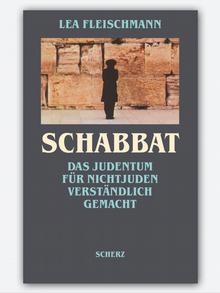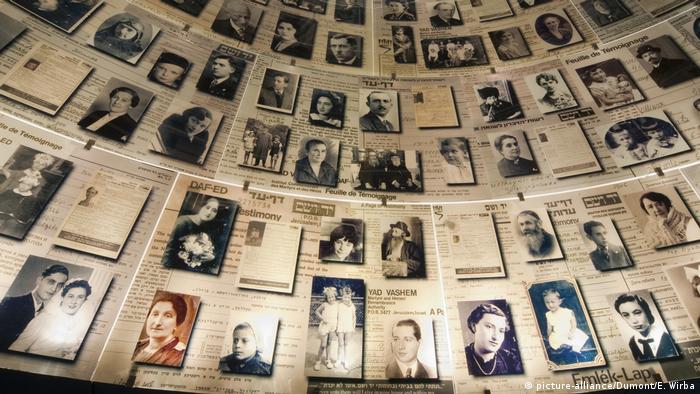40 years ago, the Jewish Lea Fleischmann left the Federal Republic of Germany. Since then, she tried to explain to German Jewry. For that you got at the beginning of the year, the Federal cross of merit. A Meeting in Jerusalem.

“You need to get to the house entrance Dalet,” says Lea Fleischmann. “Wait there, I’ll come out.” And you are standing on the street in front of a Jerusalem apartment building complex. The sky over Jerusalem is clear. And Lea Fleischmann shines. Just recently she finished her conversation with a teacher from Germany. Again, someone, the interest in Judaism shows and this would also impart to his students. Fleischmann’s happy about it. No matter how many books you’ve written, the 72 makes it clear-Year-old: “In the depth of my soul I am still a teacher.”
She asks me to take on the work Desk of her son, Arie, the place. Together with him, Lea Fleischmann runs the Association “Cultural encounters”, welcomes German tour groups who come to Israel, tells them from Judaism. And develops projects for schools, so that young Germans – as they formulated it – something “Authentic” about Judaism.

A few days ago, Lea Fleischmann in Tel Aviv, has received the Federal cross of merit, for “their tireless efforts for the German-Jewish, Jewish-Christian and German-Israeli relations”. The German Ambassador expressed it in Israel during the medal ceremony. For more than 40 years, Fleischmann is trying to explain to the Germans what it means to live Judaism. “Shabbat”, is one of her book’s title. Another “Holy food”. The subtitles in the two cases: “Judaism for non-Jews to understand.”
Grew up in a Camp for “Displaced Persons”
She was hardly religious. Born in 1947 in a DP Camp in Ulm, a camp for Survivors of the Holocaust, grew up the first years in a purely Jewish community. But to Religion it was rare. “For my parents, the German Nazis, murderers, and criminals were. So you have the Germans met and so it remained for you.”
Over the past, it was silent. And yet she was always there. The diseases of the parents – the result of forced labour. The conversations with friends, the mithörte the child secretly. And the same exhortations to the food. “If you don’t want to eat something, it said the same: In the concentration camp, we would have been happy if we had a potato. The Holocaust was always present.”
German regulations, which were reminiscent of the Nazi era
When she was ten years old, was closed in the Camp, and the family moved to Frankfurt. For the first Time, Lea Fleischmann, told you had contact with a non-Jewish environment. “I, too, was convinced that the Germans were Nazis, murderers, and criminals.” But what she experienced then in Frankfurt, did not fit into the narratives of their parents. “My teachers were very nice. My classmates also. And the seller in the shops were also friendly. I’ve met any murderers and criminals, but ordinary people.” And yet both belonged to the reality. This discrepancy was even as a child. “It was like a hole in the story, for there was no explanation.”

Dome of the rock in Israel
It was only when Lea Fleischmann teacher and as a civil servant in the German state service worked, she found an explanation. “For everything, there was a rule or an instruction.” She saw Parallels to what she had read about the national socialism. Namely, that it has also given time for each step of a decree. “Ultimately, it was correct, decent civil servants, who have carried out the Holocaust,” says Fleischmann today. “Of course, with the Nazis, a group came to Power, had terrible ideas. But put an army of the proper officials.” As in 1972, the so-called “radicals, especially the Communists out of the state let should keep a” service remote, experienced the young teacher, as not only resumes were reviewed, but also was observed, which pubs you visited, and which poems were read in class. Since you’ve thought: “What will happen in Germany, if a radical party comes to Power? And new laws are enacted? The officers will perform this, as you have already done it once.”
“This is not my country. A Jew, leaves the Federal Republic of Germany”
Lea Fleischmann went to Jerusalem, was Israeli citizen, and gave their German citizenship. “I wanted to do with Germany at the time, nothing more,” she says. How your future would look like in Israel, she did not know. Hebrew, she spoke none. As a teacher, she could not work. So it began, off in the distance with the country of their birth. And wrote a book.
The title: “This is not my country. A Jew, leaves the Federal Republic of Germany”. As it appeared in 1979 in Germany, it triggered a great debate. Because Lea Fleischmann has not attested to the Germans, only punctuality, reliability and diligence, but characterized at the same time as anxious and authority of a believer. In the event of a crisis, she wrote, would call the Germans back to the strong man.

“Hall of Names” at the Yad Vashem memorial in Jerusalem
On behalf of the Federal-developed Lea Fleischmann and her son envoy against anti-Semitism a school project: “the Sabbath – Sunday – day of rest”. Here, the students not only learn about the importance of the Jewish Sabbath, but also the similarities with the Christian Sunday. More than 200 schools in various länder have in the meantime participated. You left 40 years ago, the education service, is thus returned in the German classroom. Even if she is not physically present. “I have, fortunately, only with people who want to learn something. I’ll teach something. What is the effect on the duration, I don’t know. Who can know it?”
To Yad Vashem: Israel’s memorial to the victims of the Holocaust
Lea Fleischmann writes about Judaism as a culture scientist, but from the perspective of a woman who believes and lives this Religion in everyday life. At the same time, she has learned, but only with the beginning of 30 self-what it means in religious terms to be a Jew. You know, to approach the topic from the perspective of the newcomer.
All your books are published in Germany, not in Israel. Finally, one must – so Lea Fleischmann says explain – in Israel, no-one of what the Sabbath was.In Germany, however, the least the Jews know and don’t know what it means to practice the Religion. The Problem, says Lea Fleischmann, was that Jews were only the subject of the Holocaust mention. “Judaism does not mean persecution and Suffering. Judaism is a fascinating Religion that has influenced the whole evening land.” She wanted to show the similarities of all the religions of Judaism, Christianity, and Islam. Of Jerusalem, so she is confident, positive thoughts. Not of hatred and war, could how you my out of the news. She firmly believes: “One day we will have peace.” You wanted to make a small contribution. Each And Every Day.